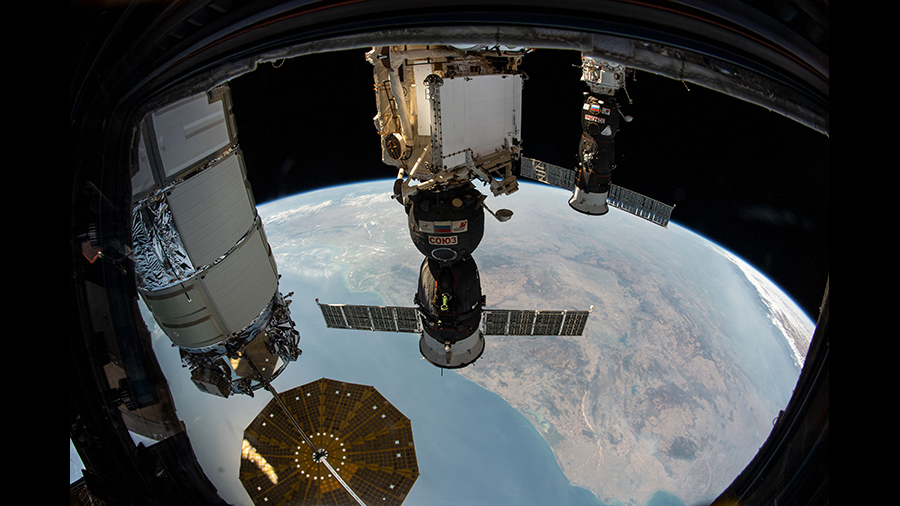Crew Examines Worms, Explores Space Manufacturing During Spacewalk Preps

Two NASA astronauts are getting their tools and spacesuits ready for Sunday’s spacewalk to ready the International Space Station for new solar arrays. Meanwhile, the rest of the Expedition 64 crew focused on a variety of space research on Thursday.
NASA Flight Engineers Kate Rubins and Victor Glover are finalizing their preparations for a planned six-and-a-half hour spacewalk set to begin Sunday at 6 a.m. EST. NASA TV will begin its live spacewalk beginning at 4:30 a.m.
Rubins and Glover configured spacewalk tools and checked U.S. spacesuits today before calling down to experts in Mission Control to report on their readiness. The duo today also continued reviewing the spacewalk procedures they will use to upgrade power channels that will soon support new solar arrays. Those solar arrays will be shipped on upcoming Space Dragon cargo missions for installation this year.
Science is always ongoing aboard the space station, not just with crew inputs but also remotely from scientists on the ground. Results and insights help improve industry, business and medicine on Earth and in space.
Worms are being observed on the station after their arrival on Monday inside the Cygnus resupply ship from Northrop Grumman. Astronauts Shannon Walker and Michael Hopkins examined the tiny worms with a microscope to explore how microgravity affects gene expression and muscle strength.
JAXA (Japan Aerospace Exploration Agency) astronaut Soichi Noguchi worked on advanced space science hardware to explore different space manufacturing techniques. He first installed the new Industrial Crystallization Facility that will demonstrate commercial crystal production available only in space. Next, he checked samples inside the Electrostatic Levitation Furnace that investigates the thermophysical properties of commercial materials exposed to extreme temperatures.
Commander Sergey Ryzhikov and Flight Engineer Sergey Kud-Sverchkov split their day working on batteries, cameras and laptop computers.
from Space Station https://ift.tt/2ZXbMQZ
Comments
Post a Comment